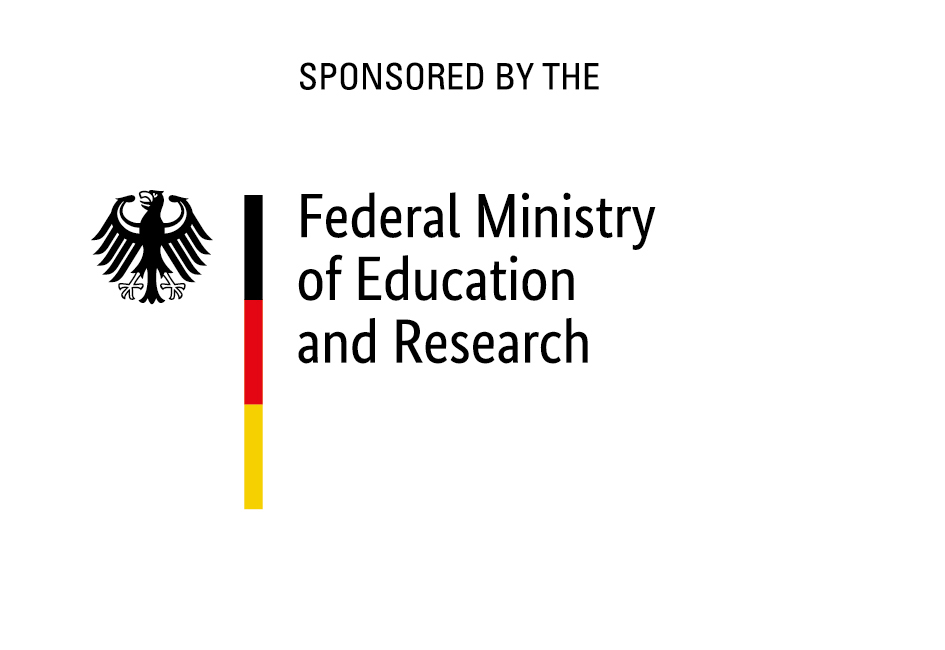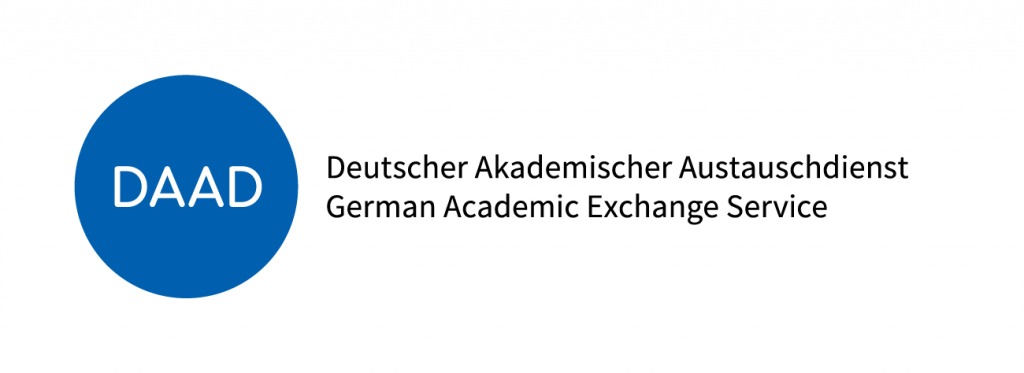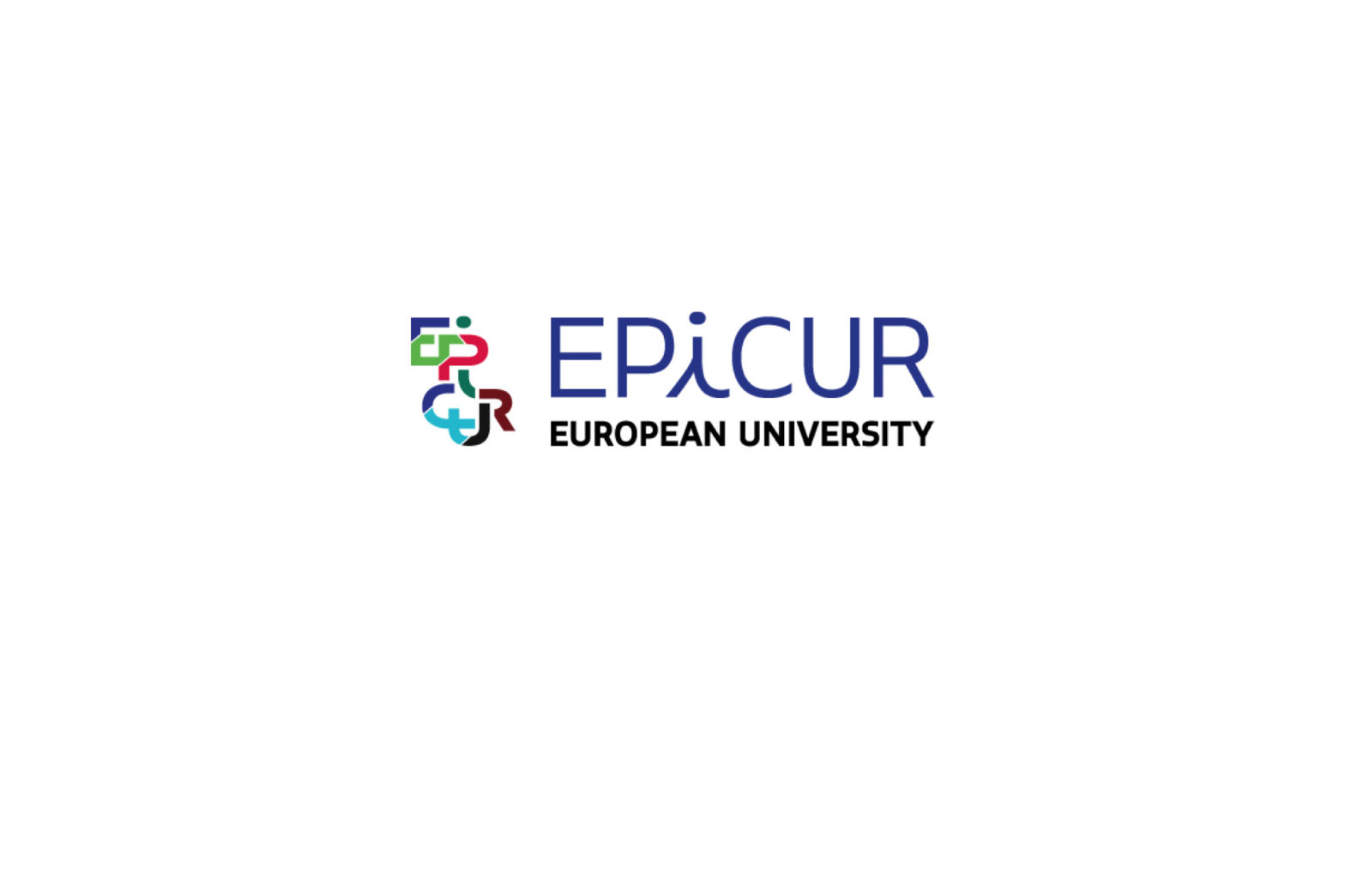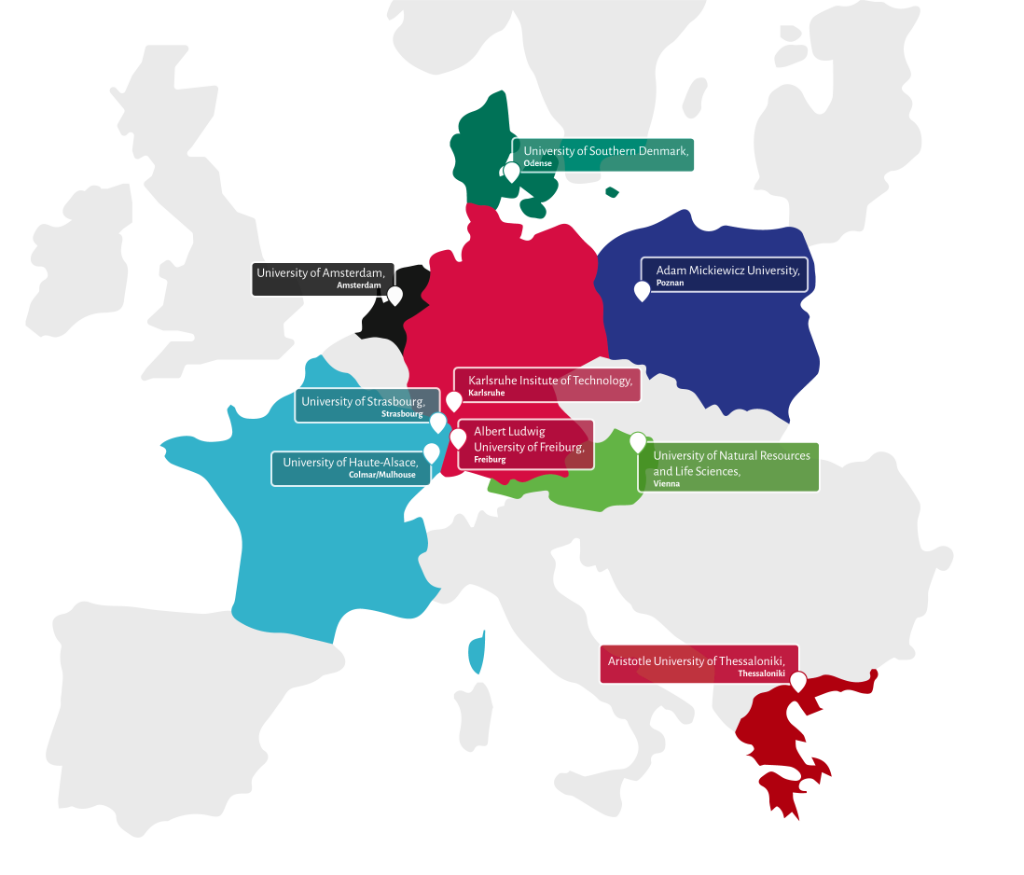What is EPICUR?
EPICUR is one of currently 41 European University Alliances that have received funding from the
European Commission as part of the initiative to establish a European Education Area (EEA) by 2025.
What partners are involved in EPICUR?
EPICUR comprises nine partner institutions from across the European Union. The nine partners have committed to developing innovative learning and teaching opportunities for their students and staff, as well as to working together to tackle global problems of societal relevance with collaborative, inter- and trans-disciplinary programs of research.
Who funds EPICUR?
European University Alliances are funded through two grants from the European Commission:
- At the end of 2019 EPICUR received an initial five million Euros from the Erasmus+ scheme in order to start planning joint teaching and learning initiatives.
- In January 2020, the Alliance received a further two million Euros under the Horizon2020 scheme in order to develop a joint research agenda. In addition, EPICUR has received generous funding from national and regional agencies (e.g., BMBF, MWK).
The EPICUR team has also contributed to winning additional funding for innovative teaching projects at the University of Freiburg (e.g., IVAR). If you have an application for teaching initiatives that you think would benefit from association with the European University Alliance, please get in touch:
epicur@mail.uni-freiburg.de — we are very happy to support funding applications in any way possible!
What has been done in the EPICUR project so far?
EPICUR Teaching and Learning initiatives have been in preparation since January 2020. Please see below for more information about ongoing projects and how to get involved.
EPICUR Research initiatives in the context of EPICUR Research started in early 2021. Please see below for more information about ongoing projects and how to get involved.
Who is involved in EPICUR?
The EPICUR Project Team is spread across multiple administrative and academic units within the
University of Freiburg. See below to find out who is responsible for what, and for information on how to become part of the growing community of EPICUReans.
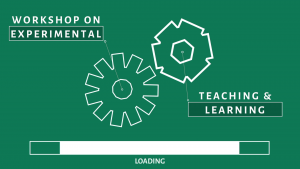
The EPICUR Alliance aims to support and promote multilingualism as a core strength of European higher education. Researchers, teachers, administrators and students across our partner institutions use a rich variety of European languages to engage in academic affairs. Across the Alliance, it is our aim to recognize the benefits of multilingualism, and to support our institutions in maintaining effective multilingual academic communities. Some of the ongoing projects in this area include:
- The Rektorat (former Prorektorin Besters-Dilger and Rektorin Krieglstein) signed a Letter of Intent, signalling the University of Freiburg’s intention to support a multilingual academic community.
- We contributed to the development of the EPICUR Model Language Policy Framework, which provides stakeholders within higher education institutions with practical advice on supporting multilingualism.
- Freiburg students will have the opportunity to study i.a. Modern Greek.
- The EPICUR Alliance aims to enhance the provision of each home institution by providing new opportunities for staff and students to come together in innovative, joint teaching and learning experiences. EPICUR aims to provide learning experiences that go beyond what can be provided by a single institution: we therefore support workshops designed to improve collaborative teaching and develop educational initiatives that boost mobility between partners. Some examples of ongoing projects include:
- Development and delivery of collaborative courses across our partners. The first EPICUR pilot courses were run in the Winter Semester 2020 at the University of Freiburg and the Karlsruhe Institute of Technology. See here for a list of current course offerings. For information on how to get involved in joint teaching, please contact Dr. Steven Randall: steven.randall@ucf.uni-freiburg.de
- Workshops for instructors at our partners to enhance interculturality in the classroom (Feb 2021), digital learning design (September 2020), and interdisciplinary, student-centred approaches to teaching (July 2020). For more information about upcoming workshops and events, please contact Katharina Kiefel: katharina.kiefel@zv.uni-freiburg.de
- Student-run workshops and events on current European Commission educational tools, such as the European Degree and Microcredentials. To get more information about how to get involved as a student, please contact our student board members at epicur-students@uni-freiburg.de or feel free to get in touch with other students in the virtual ILIAS-room.
During the pilot phase (2020-2022) the EPICUR partners are developing shared learning and campus management platforms to support joint teaching initiatives, and to reduce the administrative burden of participating in mobility offerings. Our digital Community of Learning and EPICampus are currently in development; we will announce developments here as soon as possible! If you are interested in getting involved with the creation of shared learning platforms, please contact Dorthe Hutz-Nierhoff: dorthe.hutz@rz.uni-freiburg.de
The EPICUR Project relies on contributions from staff and students across the entire university. If you are interested in more information about any of our initiatives, or would like to get involved yourself, please contact one of the following staff members to find out more:
- Charlotte Langowski: Charlotte.Langowski@zv.uni-freiburg.de
EPICUR Institutional Coordinator at the University of Freiburg - Dr. Verena Kremling: verena.kremling@zv.uni-freiburg.de
EPICUR Project Officer at the University of Freiburg - Dr. Steven Randall: steven.randall@ucf.uni-freiburg.de
Project Officer for EPICUR Teaching & Learning
Do you want to be kept up to date on what’s happening in the EPICUR-world? Then subscribe to our EPICUR mailing list at myAccount (category “European University”), which will regularly provide you with information.
Here you can find out more about current offers from EPICUR. Get to know our range of courses, find out about upcoming events or learn more about exciting ongoing projects. To apply for EPICUR-courses and to get an overview of current course offerings, interships and options for networking, visit us at our virtual EPICUR Inter-University Campus (EIUC).
Information for interested University members of all EPICUR Partner institutions at the EPICUR Centre for International Teaching and Learning (EPiC TLC)
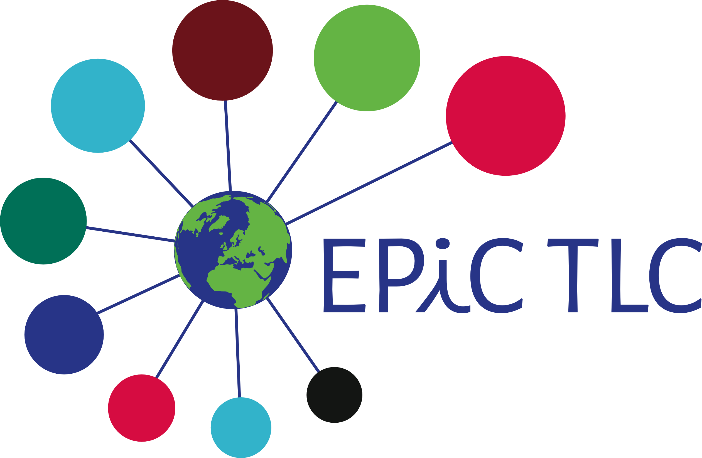
If you are interested in offering or opening up a course for EPICUR students, are interested in interdisciplinary teaching and transdisciplinary learning and would like to network with other teachers and teaching support staff, visit the EPICUR Centre for International Teaching and Learning (EPiC TLC). Log in with your university user ID.
We need your opinion! Fill in EPIDIs (European Partnership for Innovation in Distant Internships) Europe-wide survey on remote internships!
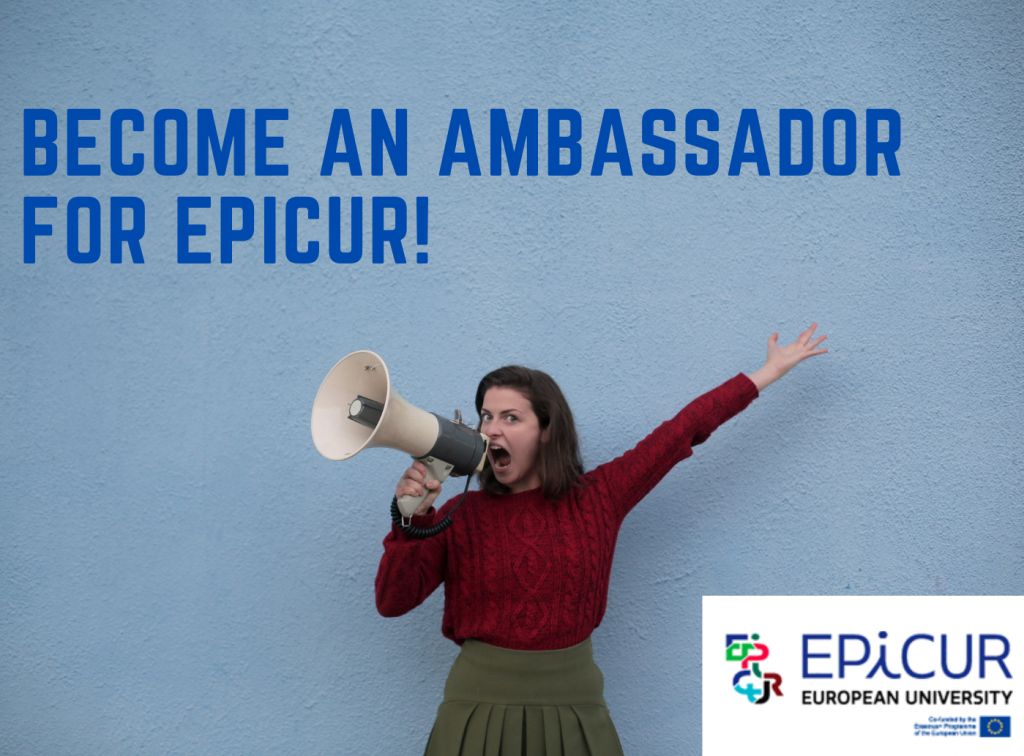
Become an ambassador for EPICUR!
We are seeking motivated members of our university community to become EPICUR Ambassadors for the University of Freiburg. EPICUR Ambassadors play a critical role in the alliance, increasing the visibility of EPICUR-wide activity within the university, as well as enhancing communication between the EPICUR alliance partners.
Who are we looking for?
We are looking for members of the university in all domains (i.e., students, researchers, teachers, and administrative staff) who are excellent and motivated communicators (preferably in German and English), and who are passionate about the European Universities Initiative and the EPICUR Alliance. If you have been involved in an EPICUR event (e.g., a course, a forum, EPICURtalks), and would like to share your experiences with the wider university community, please get in touch!
What do we want from you?
- Represent the EPICUR project at the University of Freiburg
- Communicate with your networks about EPICUR events and initiatives (English and German)
- Participate in (international) EPICUR events organised by the alliance
- Have prior experience with EPICUR activities (it´s a plus!) and basic understanding of EPICUR
- Commit at least for one year to the tasks of EPICUR Ambassadors on a voluntary basis
Why become an EPICUR Ambassador?
- Contribute to Europe’s multilingualism and cultural diversity by having a voice in an European network
- Gain valuable personal and professional experiences and contacts in a prestigious EU-funded project
- Increase the visibility of your study programme and institute/department through the EPICUR-wide activities and Ambassadors’ Network
- Network at the University of Freiburg
- Travel and attend EPICUR events and activities at one of the 8 EPICUR partner
universities in Europe
Duration?
- Up to 1 year
Start?
- Now
Interested?
If you are interested, please feel free to contact the EPICUR communications officer, Katharina Kiefel at the University of Freiburg with any questions. For the application, we need a brief motivation letter stating your personal background, past involvement with the EPICUR project and availability to:
Katharina Kiefel
EPICUR communications officer
katharina.kiefel@zv.uni-freiburg.de
Be EPICURious!
EPICUR Research

EPICUR Research kicked-off in early 2021! Funded in the framework of Horizon 2020 in the programme line “Science with and for Society” [SwafS], EPICUR Research will develop a common research agenda for the nine partner universities to improve and strengthen the interaction between science and society.
EPICUR Research will also empower early career researchers by initiating bottom-up collaborative processes and building new EPICUR networks for researchers in all their career stages, thereby forming a new kind of research community that crosses over disciplinary borders and opens universities to their communities.
Challenge-based research
EPICUR aims to develop solutions to societal problems that incorporate the expertise and knowledge of individuals and institutions from diverse sectors of society. Convinced that international collaboration fosters scientific and societal progress, EPICUR is developing a joint research agenda with an inter- and transdisciplinary approach to tackle pressing research questions, so-called EPIChallenges. Inspired by the “Six Transformations to achieve the SDGs” as well as by the Green Deal, “Missions of Horizon Europe”, and the EU Skills Agenda, EPICUR has set three EPIChallenges to start with: Sustainability research (including Climate Change and Energy); Mobility, Migration & Identity; Transition of Public Health. These three thematic scopes are meant to open a new space for innovative research led by early career researchers from a variety of disciplines. It is the hope of EPICUR Research that by offering these spaces, the alliance invites young researchers to explore new collaborations that bring together the diversity of expertise and perspectives required to face the challenges posed by such global phenomena as climate change, pandemics, and forced migration.
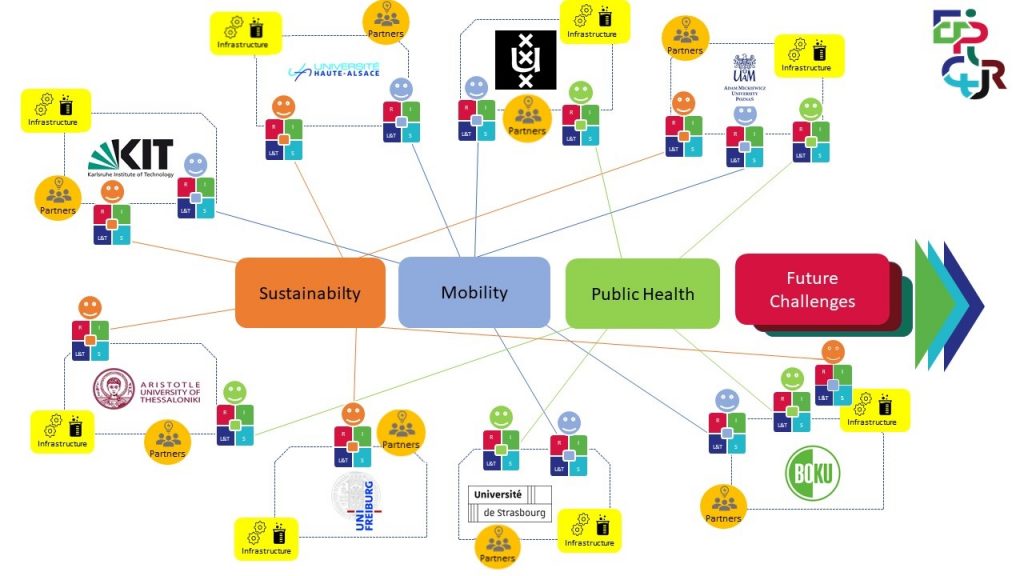
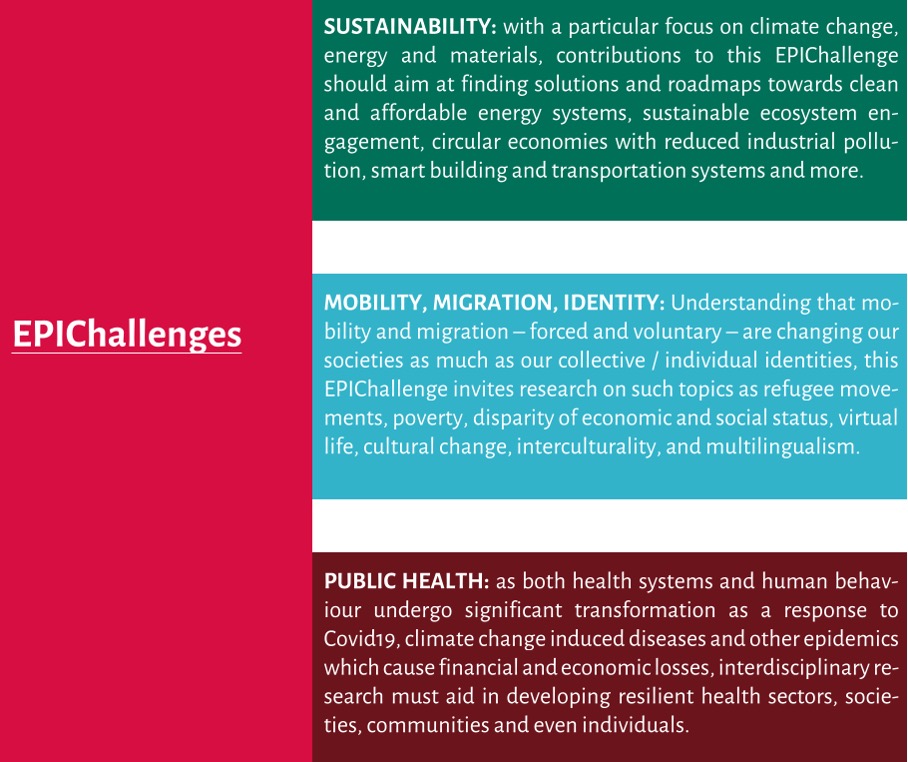
Inter- and transdisciplinary research
There is a multitude of definitions regarding both interdisciplinary and transdisciplinary research, which at the core all describe the need to integrate not merely diverse data and information but also to reflect and combine methodology, tools, research approaches, techniques and theories from divergent disciplines. And eventually, reach beyond the walls of universities themselves to involve non-university partners and include even more diverse sources such as indigenous or practical knowledge. For EPICUR, interdisciplinarity is conceived as the collaboration between researchers from different academic disciplines, whereas transdisciplinarity is the collaboration between academics and partners from other sectors of society, such as civil society and governmental organisations, industry and business. EPICUR will build on and help implement the ideas and concepts developed by SHAPE-ID, an EU-funded project addressing the challenge of improving inter- and transdisciplinary cooperation between the Arts, Humanities and Social Sciences (AHSS) and other Sciences, particularly Science, Technology, Engineering and Mathematics (STEM) disciplines.
Focus on Early Career Researchers
EPICUR research and innovation formats address early career researchers (ECRs) as the alliance considers them the new generation of European leading researchers and therefore instrumental in driving institutional transformation. To achieve this, early career researchers need new and more opportunities to acquire the skills enabling them to advance their academic careers under new conditions and with increasing speed. EPICUR trusts in the ability of early career researchers to lead the charge and thus involves them in the conceptualization of its formats from the start. In addition, EPICUR is committed to integrate early career researchers into its decision-making structures and governing bodies. By doing so, EPICUR hopes to establish a different academic culture that is shaped by and for the needs of researchers in all career stages, taking into account the particular challenges of scholars with families, women and researchers hailing from diverse (e.g. non-academic) backgrounds who continue to be underrepresented in European academia.
EPICUR seeks to establish collaboration between groups of EPICUR partners and external stakeholders from surrounding regions, including civil society organisations, governmental organizations and industry by designing and implementing innovative research collaboration formats.
– Create an EPICommunity
The EPICommunity is aimed at providing early career researchers with new tools catering to their autonomy and visibility by recognizing relevant skill sets and allowing for networking, via a new database as well as by facilitating blended mobility opportunities.
Early career researchers are invited to co-create a prototype for a European social network of researchers to support their matchmaking and collaboration and based on an attractive gamification design that reshapes the assessment of researchers
More information to follow soon.
– Building EPIClusters – Developing Excellent Research Responding to EPIChallenges
EPIClusters are experimental research formats aimed at facilitating collaboration of academics with societal and industrial stakeholders for research and innovation. EPIClusters will inspire sharing infrastructures and resources (laboratories, archives, data bases, libraries etc.) between EPICUR partners and external partners in order to create scalable good practices of joint research and innovation.
Network-to-network collaboration
As proud member of the first cohort of European Universities alliances, EPICUR will build intelligent connections to other peer Europeans Universities Alliances in EPIConnect, to facilitate the preparation of joint policy recommendations for shaping the Universities of the Future.
More information to follow soon.
The EPICUR alliance seeks to compliment the development of a common research agenda with a bottom-up process that engages early career researchers in leadership driving innovation in research and methodology. This signifies its commitment to foster and support emerging research as well as ignite institutional changes that help empower early career researchers.
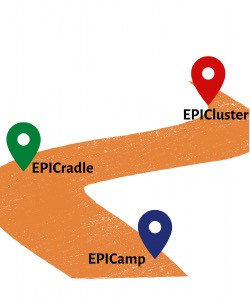
At the end of this bottom-up process, which we will develop and test in the pilot phase of EPICUR Research, there will be two so-called EPIClusters, initiatives with the potential to produce innovation and excellence in research. The themes and participants of the two EPIClusters will be identified and promoted in the course of an iterative bottom-up process. As EPICUR seeks to empower early career researchers rather than pin them against each other, the process although necessarily selective/competitive in its final stages (the selection of EPIClusters) aims to be as inclusive as possible from the start. EPICUR is committed to diversity, as we believe it to be the only basis for true excellence and we believe that advancing early career researchers of all disciplines and backgrounds will make Europe’s collective academia smarter and more competitive in the global market. Therefore, participating in the journey from EPICamps to EPIClusters will be beneficial to early career researchers whether they win a bid for an EPICluster in this first round or not. Building the EPICUR network of early career researchers from which these research collaborations will emerge, EPICUR Research will offer many workshops and networking opportunities along the way that are open to young scholars from all disciplines and will aid their career development by
- expanding their skills in interdisciplinary and transdisciplinary research,
- introducing them to open data management and publishing in open science formats,
- training them in science communication and applying for grants
- offering them insights into the different funding and career structures of all nine partner institutions and the five national science systems represented in the alliance
- introducing and matching them to their peers from across the EPICUR alliance and beyond
The journey will start with the invitation of Early Career Researchers to the so-called EPICamps, a low-threshold format allowing easy participation from anywhere in the alliance. EPICamps will allow early career researchers to engage with like-minded researchers from across the alliance and disciplines in formats ranging from short presentations and poster exhibits to interventions and methodology workshops. In the process, we hope that early career researchers will identify potential for concrete collaboration with their peers from partner universities. In the weeks following an EPICamp, EPICUR staff will offer support developing these first ideas into more concrete initiatives, as well as encourage further networking among early career researchers.
Based on more solid ideas of such informal initiatives and upon a short proposal, groups of up to five members from partner universities from at least three different countries will be invited to apply for EPICradles. These will be joint research sojourns at one of our Institutes for Advanced Studies or at a research facility. EPICradles will allow these small research groups to develop project proposals valid for third party funding. EPICUR staff in close collaboration with the hosting institutes and partner universities will support the emerging research groups through identifying advisors, non-university partners and additional resources. The researchers will set the scientific foundation and design PhD and postdoc projects with which they can apply for an EPICluster. EPICradles and EPIClusters will only start in 2022, thus further information is to follow soon.
EPICamp noun
E.PI.Camp I \ ˈe-pi-ˌkamp \
= combination of barcamp and EPICUR
= the idea that when curious people gather, great things emerge
What is an EPICamp?
EPICamps are low threshold workshops, inspired by the barcamp (also known as unconference) format, offered to early career researchers of the EPICUR alliance to engage with peers as well as established researchers with similar interests in order to pursue joint inter- and transdiscipli-nary projects on societal challenges. Meeting at an EPICamp will allow early career researchers to explore similarities and – perhaps more importantly – complementarities of their research. EPICamps will combine different formats – from mini-pitches to larger discussion groups – in order to facilitate networking across our nine partner universities and to enhance academic matchmaking of researchers from different disciplines and fields.
EPICamps will be hosted virtually (until further notice) by a core group of researchers from at least three of our partner universities. These core groups – called EPICamp Academic Boards – may consists of established and early career researchers from any discipline or field. They will coordinate the topics and themes of the EPICamps along the three EPIChallenges of “Sustainability”, “Migration, Mobility, Identity” and “Public Health.” We encourage interested researchers to reach out to us with ideas and topics that fit into one or more of the three EPIChallenges: whether you would like to contribute a small format or wish to organize an entire EPICamp, all initiative is welcome.
Who can partake?
EPICamps are open to researchers of all career stages from all disciplines and all partners. They are, however, directed primarily at early career researchers who will be eligible for funding in later stages of the EPICUR Research project. Taking into account the diversity of how each partner organizes the career development, EPICUR employs a broad definition of early career researcher for the EPICamps. This means we invite scholars from a broad spectrum of research career development, reaching from the final stretches of their PhDs to the first years of tenure track positions. We also encourage established researchers who would be interested in mentoring early career researchers or would like to advise on projects to attend as well.
Prospective participants of the EPICamps should have a general interest in pursuing interdisciplinary research and/or work transdisciplinary with partners from outside academia. They should have a proven interest in the EPICamp’s topic they wish to attend, however, no previous experience in the field and/or inter- and transdisciplinary work is required.
Prospective Participants: If an EPICamp’s Call for Participation catches your interest, please sign-up!
How do I participate?
The Academic Board of each EPICamp will create an open Call for Participation, which will be distributed widely across the alliance. Paying heed to the format of the barcamp / unconference, the program of each EPICamp will look different, offering opportunities to present work in mini-thesis-presentations, poster sessions, and panel or group discussions etc. but also giving space for ad-hoc gatherings, one-on-one video chats, academic speed-dating sessions and methodology exchanges. EPICamps invite the spontaneity and creativity of their participants, allowing great things to emerge.
How can I get involved?
If you have questions or you would like to get involved, please contact our Lead Team at the University of Freiburg and the University of Natural Resources and Life Sciences, Vienna.
Contact

Dr. Mercedes Küffner
Albert-Ludwigs-Universität Freiburg
Project Management EPICUR Research

Nina Eisenmenger
University of Natural Resources and Life Sciences Vienna
Work Package Co-Lead
Common Research Agenda
EPICradle noun
E.PI.Cra.dle I \ ˈe-pi-ˌ krā-dᵊl \
= the combination of EPICUR and cradle
= the framework and support structure to make great ideas grow
What is an EPICradle?
EPICradles are an opportunity for Early Career Researchers (ECRs) from EPICUR partner universities
- to acquire new research skills and competences, especially in the area of interdisciplinary & transdisciplinary collaboration in a European context,
- to gain information on funding schemes,
- to connect to ECRs and to develop collaborative projects.
As such EPICradles function as ‘incubators’ for innovative research led by ECRs. Overall, the main objective is to produce challenge-based projects beneficial to society, addressing such broad topics as sustainability, mobility/migration/identity, and public health. Known as EPIChallenges, these topics are meant to engage researchers in the broader responses to global questions about the future of humanity. During the EPICradles, ECRs will have ample opportunities to engage with senior scholars, administrators and experts from our partner universities, our regional communities, and other stakeholders.
How does it work?
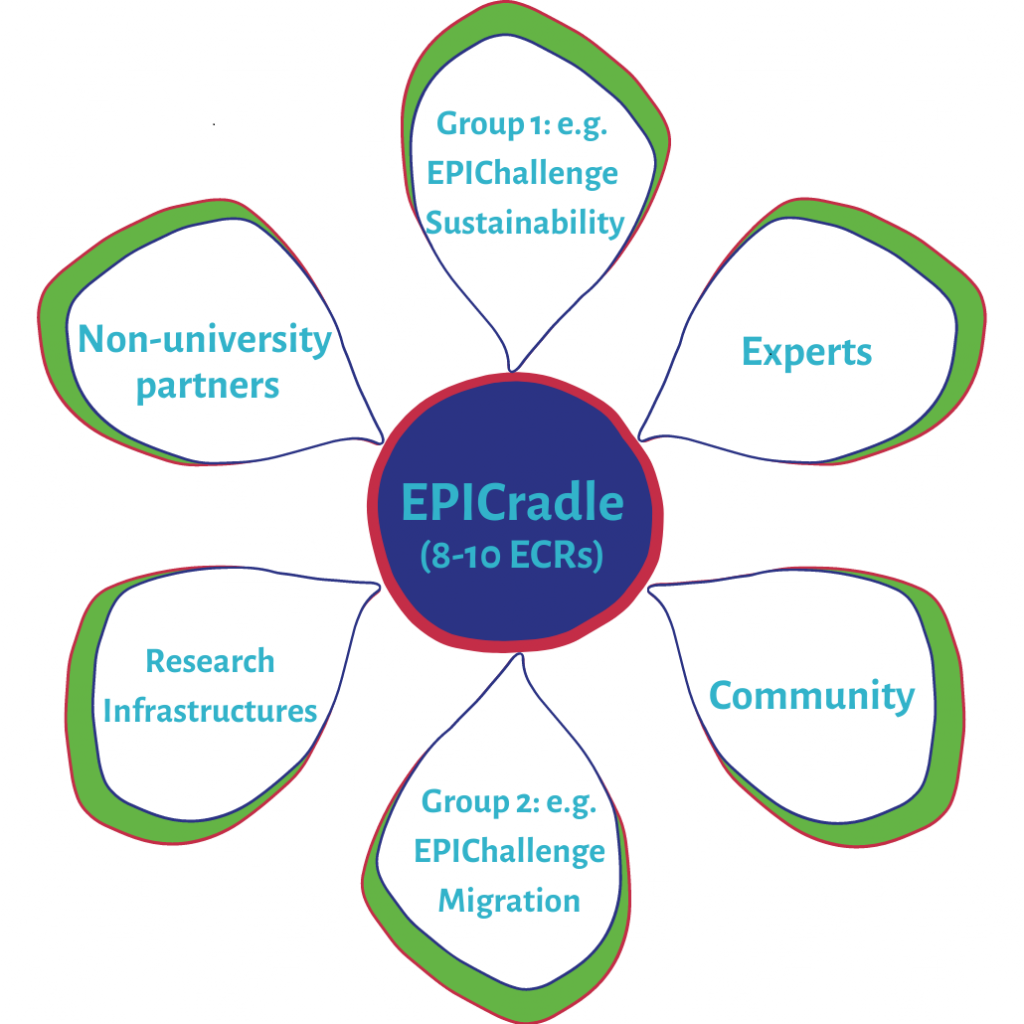
The fellowships will be organized as hybrid formats, running for three months. They will bring together two groups of up to 5 ECRs from different partner universities for virtual and physical collaboration. Both groups will be working on topics relevant to one or more of the EPIChallenges (Sustainability, Mobility/Migration/Identity, Public Health Transitions). This will provide a unique opportunity to foster and explore interdisciplinary and transdisciplinary research activities to foster new academic careers. During the EPICradles, ECRs will ideally turn their research ideas into fundable projects.
Who can participate?
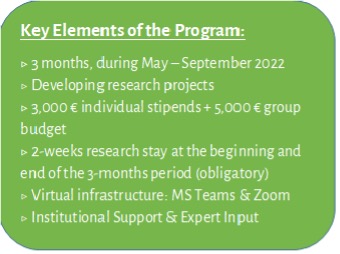
EPICradles are open to Early Career Researchers from all disciplines and all partner institutions. Taking into account the diversity of career development stages at different institutions, EPICUR employs a broad definition of an Early Career Researcher for the EPICradles. Namely, we invite applicants who are in the final stages of their PhDs as well as prospective candidates within a +/- 6-year range of receiving their doctorates (exceptions in the case of family and care responsibilities will be made on an individual basis). We also welcome more advanced researchers or non-university applicants with an interest in transdisciplinary work, who bring their own funding.
Prospective participants of the EPICradles should have a general interest in pursuing interdisciplinary research and/or transdisciplinary work with partners from outside academia. They should have a proven interest in the EPIChallenges they wish to work on; however, no previous experience in the field and/or inter- and transdisciplinary work is required.
How do I participate?
The Call for EPICradle Applications for the first round in summer of 2022 will be launched March 15th and closed April 15th, 2022; for more information, please follow this link.
Contact

Dr. Mercedes Küffner
University of Freiburg
Project Management EPICUR Research

Nina Eisenmenger
University of Natural Resources and Life Sciences Vienna
Work Package Co-Lead
Common Research Agenda
EPICluster noun
E.PI.Clus.ter I \ ˈe-pi-ˌ klə-stər \
= the combination of EPICUR and cluster
= an aggregation of researchers and civil society partners who work to solve the world’s big issues
EPIClusters will be new, trans- and interdisciplinary, challenge-oriented research formats which will also include stakeholders from other sectors like business, industry, politics, NGOs, public services, townships or regions. At the same time, EPIClusters will inspire sharing infrastructures and respective resources all over our network in order to create up-scalable best practices of joint research and innovation.
Coming soon.
There are currently no activities offered in EPICUR Research. Upcoming activities and events will be posted here. If you have any questions, please contact: epicur-research@mail.uni-freiburg.de
